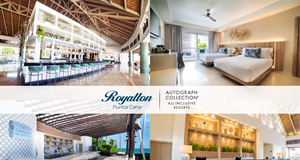
News Americas, PORT-OF-SPAIN, Trinidad, Thurs. April 10, 2014: Trinidad & Tobago nationals took to message boards yesterday to salute Arthur Napoleon Raymond (ANR) Robinson, their third President and Prime Minister, minutes after news broke that he had passed away at the St. Clair Medical Centre in Port-Of-Spain, Trinidad.
The Tobago-born Robinson, who survived being shot in the leg and beaten during the 1990 coup d’état attempt by the Jamaat al Muslimeen, passed away at around 6 a.m. on Wednesday April 9, 2014. He was 87 and had been suffering a number of health ailments including a stroke and prostate issues.
On the Trinidad Express website, Trinis from around the world added their condolences even as the country’s current prime minister ordered the national flag to be flown at half-mast and declared a period of national mourning.
Robinson, who was also former chairman of the Tobago House of Assembly, was described as a “fallen solider,” a “great Prime Minister and President,” an “outstanding statesman” and a “man who demonstrated high moral and spiritual values” by T&T nationals .
Prime Minister Kamla Persad-Bissessar on Wednesday said T&T has lost one of its “outstanding sons and an elder statesman” while she has lost “a friend and political mentor.”
“Mr. Robinson’s passing is a deep and tragic loss for our country, but the legacy he leaves behind shall surely live on to inspire today’s and tomorrow’s generations,” said the PM before visiting the home of the former head of state to sign a book of condolence in honor of Robinson in the presence of his daughter, Ann Margaret, and grand-daughter, Anuska.
T&T opposition leader Dr Keith Rowley said the late President and Prime Minister has left a legacy of leadership which has come to immortalize the words “attack with full force.”
“Even in the midst of what has become known as one of the darkest periods in our nation’s history, he was resolute in his role as leader,” said Rowley.
Secretary-General of CARICOM, Irwin LaRocque, said “the Caribbean Community has lost one of its truly great sons who will always be remembered for his historic role at the landmark Grand Anse Meeting in 1989, where the decision was taken to significantly deepen our integration.”
T&T’s National Security Minister Gary Griffith has said a state funeral is being planned for the man who held the distinction of being the first active politician to be elected president.
Robinson was elected to the Federal Parliament of the defunct Caribbean Federation in 1958 and to the Trinidad and Tobago Parliament as a representative for Tobago in 1961. He served as the first Minister of Finance of Trinidad and Tobago after Independence and later as Minister of Foreign Affairs.
He broke with the People’s National Movement (PNM) party following the Black Power disturbances in 1970 and founded the Action Committee of Democratic Citizens (ACDC). In conjunction with the Democratic Labour Party, Robinson led the ill-fated “No-vote” campaign of 1971.
Following the election, Robinson founded the Democratic Action Congress (DAC) which won the two Tobago seats in the 1976 and 1981 elections.
In 1981 Robinson joined forces with the United Labour Front (ULF) under the leadership of Basdeo Panday and the Tapia House Movement under the leadership of Lloyd Best to form the National Alliance. This group entered an Accommodation with the Organisation for National Reconstruction under the leadership of Karl Hudson-Phillips to fight (and win) the Local Government elections of 1983. Building on this victory the four parties combined to form the National Alliance for Reconstruction (NAR) which won the 1986 elections by a margin of 33-3 and Robinson was appointed the first non-PNM Prime Minister.
Prior to the 1986 elections Robinson was instrumental in setting up the Tobago House of Assembly (THA) and was its chairman from December 1980 to 16 December 1986. This local government entity was established in 1980 to strengthen the position of Tobago within the unitary state of Trinidad and Tobago. His party, the DAC (and later the NAR), controlled the THA from 1980 until 2001, when the PNM gained control of the body.
During the 1990 coup d’état attempt by the Jamaat al Muslimeen the Prime Minister Robinson and much of his Cabinet were held hostage for six days by gunmen under the leadership of Yasin Abu Bakr.
When instructed to order the army to stop firing on the Red House (the seat of Parliament where they were held hostage) Robinson instead instructed them to “attack with full force,” an action that earned him a severe beating from his captors. He was also shot in his leg.
Robinson served as the country’s third President from March 19, 1997 to March 17, 2003 and as Trinidad and Tobago’s third prime minister from December 18, 1986 to December 17, 1991.
His life was punctuated with numerous accolades, gaining international recognition for his proposal that eventually led to the founding of the International Criminal Court.
Robinson was also bestowed the following honors during his life time: Distinguished International Criminal Law Award, International Criminal Court Foundation 1977, Distinguished Merit Award for International Diplomatic Achievement 1986.
His name will live on in the annals of history including flying high on Trinidad & Tobago’s airport, which in 2011 was renamed the A.N.R. Robinson International Airport.








